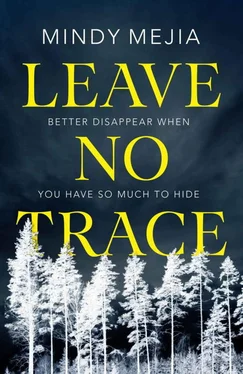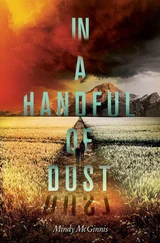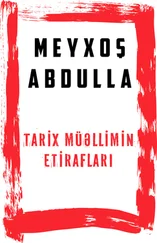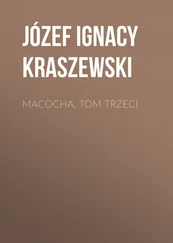The shriek of the alarm kept me from having to answer. I punched in the code, my birthday, the day we’d always spent here because I knew she couldn’t handle throwing me a party with friends and cake and the chattering of strange mothers at our door. Instead we drove up here as soon as school let out, going ‘Up North’ like all true Minnesotans, and we roasted the first s’mores of the summer over a birthday bonfire at the water’s edge. She only made those bonfires for me and sometimes my dad on the few days he could leave work during the busy shipping season. No one else was ever invited into this house.
With the alarm silenced, I looked around, slowly pivoting to take it in. The living area and kitchen took up the main room, with a screened-in porch opening up to the lake below. A small bedroom – my bedroom – and the bath were tucked under a stairway that led up to a loft in the rafters, where her sleeping area overlooked the first floor. Everything was the same. The same rag rug laying in front of the fireplace, the same stack of Rock & Gem magazines on the coffee table, the same rips in the vinyl of the 1950s kitchen chairs, tucked underneath the metal soda shop table. I moved through the main floor, touching nothing, a shell-shocked investigator who’d somehow traveled back in time to search for evidence.
When I turned the light on in my old bedroom, a mouse scurried across the floor and disappeared under the twin bed. Nothing was out of place. The bed was made up with the faded daisy quilt I used to hide under with a flashlight to read stolen copies of her geology magazines, scouring them for tidbits that might impress her or something I could ask her, anything to engage her attention. She came alive when she talked about minerals and sometimes we even went on rock hunts, scouting the wilderness for days on our geology adventures. I opened the closet, pulled out drawers, and found nothing except a few rocks here and there, which – when I held them up to the light and ran a finger over the waxy surfaces – I found were all agates. Turning to go upstairs, I glanced at Lucas’s face and stopped dead.
‘What?’ I glanced at the spot where he was staring, a faded picture on the wall of a cliff and a man dangling off the edge by one hand. Believe, it said in thick black letters underneath the image. I’d never been sure what I was supposed to believe by looking at that picture. That he was strong enough to hold on? That the cliff wouldn’t crumble? Or that his grip would eventually give out, that no matter how capable he was he couldn’t hold on forever. I looked back at Lucas, who’d gone as pale as the petals of the daisies on the bedspread. ‘What is it?’
He didn’t answer. Walking to the bed, he sat down on the pillow and stared at the picture again, now directly in front of him, then he craned his head to take in every detail of the room. There wasn’t much to see and nothing to justify his sudden agitation.
‘No.’ He ejected himself off the mattress and ran to the door, leaning into the frame as his breathing became ragged.
‘Lucas, what?’ I pulled his arm and, when that had no effect, shook him as hard as I could, suddenly angry for no reason I wanted to name.
His eyes bounced around the cabin, unable to settle, and he lifted his hands to squeeze his head, heaving air in and out, manifesting all the signs of a panic attack. I tried to pull his arms down and get him to look at me when he began chanting and shaking violently. One unbroken ‘Nononononononono.’
‘Lucas!’
‘It was here.’ He broke away, lunging back into the great room and pacing the edges like a caged animal.
‘What are you talking about? What was here?’
‘I was.’ He stopped dead, lifting his shocked face to mine.
We stared at each other across the room as I tried to make sense of the words, but what he was saying was impossible. A delusion. When I moved toward him, he jerked back, ducking away.
‘I don’t understand.’
‘My father and I – we were here. This is where I was sick. That guy hanging off the cliff in the picture. I remember it.’ He swung an arm toward my bedroom before his eye caught on a dust-covered picture frame orphaned on a corner table. Grabbing it, he wiped the dirt off and stared at the unsmiling woman and girl. My dad had taken the photo, not fifty feet from where we were standing. ‘She told me the cliff was made out of salt and I couldn’t stop thinking about it. A mountain of salt.’
A dawning horror began to clench my body, gripping me, choking me. I couldn’t feel my feet. The fish we’d eaten for lunch began moving in my stomach, threatening to swim back up my throat. I stepped closer, until the woman in the picture snapped sickeningly into place.
‘Basalt,’ I whispered. ‘The cliff was made out of basalt.’
Tears spilled down his cheeks as he looked at me.
‘It wasn’t Heather Price’s body.’
IDIDN’T REMEMBER falling to the floor or clawing at the sudden burst of pain in my abdomen. One minute Lucas was across the room, the next he was prying my fingers off my side, his face too close, the breaking glass of the picture frame still echoing against the walls of the cabin.
He knelt in front of me, pleading, sucking all the oxygen from the air. It was too much. I pushed him off and scrambled as far away as I could, wedging my body into a corner of the kitchen and holding a hand in the air – a warning. Still kneeling, the entire story poured out of him, all the thoughts and feelings I’d been so patiently working to get him to reveal and to which now I could barely force myself to listen.
When Lucas had been brought to Congdon and met me, he said, he began fighting a war with his memories. I’d reminded him of the woman who’d nursed him when he was so sick as a child, the pale lady with long brown hair who questioned him about his symptoms while reading a little book. The same little book, I realized, my mother had borrowed from Harry. The Merck medical manual. She’d laid cool rags on his forehead and told him about the salt cliff, she’d stared at him from the end of the bed and didn’t reply when he asked for his father, making him squeeze his eyes shut and wait for her to leave. One night, after he’d begun to feel better, he’d heard noises on the stairs and crouched behind the door as his father carried a body outside. The car engine started, headlights flashed across the living room – this living room – and he never saw the woman again. Ten years later, when he barely remembered what she looked like, I’d walked into his isolation room.
He didn’t make the connection immediately, not until I brought the minerals and began explaining them, forcing his mind back to the bedrock of his life in the Boundary Waters, the reason for their disappearance. That’s when it clicked, when the horrible connection was forged. I know you. Every time he saw me after that was torture. He felt drawn to me, compelled to confess and find out who I was, yet afraid at the same time, trusting nothing and no one in the place that had stolen his every freedom. He began to think Congdon knew about the body and they’d deliberately planted me to get him to hand over his father. Ward two had no shortage of paranoia, and some of it had worked its way into his mind as the strange noises kept him awake every night, never knowing what the next day would bring. It culminated on the day I took him into the grounds, when he thought I was tricking him into betraying the only person he loved.
It wasn’t until he woke up in the hospital and saw the picture of Heather Price that he questioned his own memories. He’d been so sick when it happened, hallucinating about bugs in the sky. Mountains of salt. Maybe he’d hallucinated more than he’d thought – and layered on top of the doubt was certainty, a bone-deep certainty that he’d known the woman in that picture on his hospital table, he’d seen his dad fighting with her. And whoever she was, she wasn’t me. He was overcome with the need to find me, away from the eyes and ears of Congdon, and when he did the details I gave him about Heather’s death made sense – the timing, the overdose – in a way that made him believe.
Читать дальше












